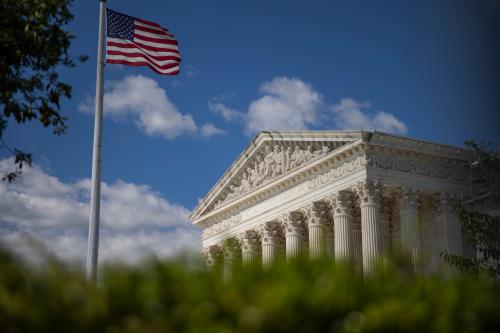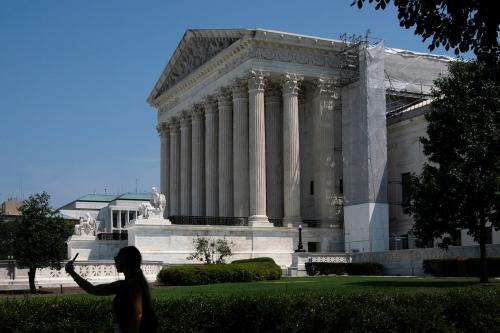The following is part of the Series on Counterterrorism and American Statutory Law, a joint project of the Brookings Institution, the Georgetown University Law Center, and the Hoover Institution
Introduction
For years there has been a debate about whether to create a national security court to supervise the non-criminal military detention of dangerous terrorists. The debate has many dimensions and is often confusing. Some national security court opponents are really opposed to the non-criminal military detention system that such a court would supervise, and insist that terrorists be tried in criminal court or released. Other opponents of a national security court accept the need for non-criminal military detention but do not favor institutionalizing a new and “secret” court to oversee these detentions. Proponents of a national security court come in many stripes as well. They advocate many versions of the court with many different tasks, ranging from various forms of detention supervision to the conduct of criminal trials.
This essay attempts to simplify these issues, at least a bit. It argues that the national security court debate—a debate in which I have participated —is largely a canard. The fundamental issue is whether the United States should have a system of non-criminal military detention for enemy terrorists who for many reasons are difficult to prosecute and convict by trial. If the Obama administration chooses to maintain a system of non-criminal military detention—and for reasons set forth below, I think it should—it will necessarily also choose to have a national security court. This is so because federal courts constituting a “national security court” must supervise non-criminal detention under the constitutional writ of habeas corpus and a likely statutory jurisdiction conferred by Congress. Viewed this way, we have had a centralized and thinly institutionalized national security court for years in the federal courts of the District of Columbia, which have been supervising Guantánamo Bay military detentions. The hard question about a national security court, once we accept the need for non-criminal military detention, is not whether it should exist but rather what its rules should be and, just as important, who should make these rules. In my view, Congress and the President, rather than the courts, must play the predominant role in crafting these rules. After explaining these points, I outline some of the issues and legal policy tradeoffs that the political branches should address, including whether such a court should be an independent institution akin to the Foreign Intelligence Surveillance Court and whether it should conduct criminal trials in addition to supervising detention.


